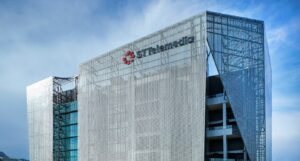
Stratus Technologies has formally launched its ztC Endurance range of servers in Singapore and parts of Asia-Pacific with the promise of providing up to 99.99999 per cent or “seven 9s” uptime for businesses that can’t tolerate unplanned disruption.
The high-availability hardware is aimed at a number of industries, such as financial services, oil and gas, and public transport, which depend on critical computer hardware to run with near-zero downtime.
Among the new features on the ztC Endurance is the ability to automatically predict potential hardware failures, by monitoring up to 500 “alarm points” or possible points of failure. This way, a business user can proactively take action and change out potentially faulty parts before they break down.
Stratus, which has selling fault-tolerant and high-availability systems since 1980, also provides health monitoring of the ztC Endurance systems it sells to customers. Again, this means IT teams do not get surprised by a disruptive breakdown in hardware.
The ztC Endurance builds on the company’s earlier systems, such as the ftServer and ztC Edge systems, which are used today by a variety of customers that often do not have IT staff on-site to repair or troubleshoot a faulty system.
This is because Stratus’ servers rely on a modular design that use “industry standard” components, it says. The new ztC Endurance, which was unveiled in late last year, comes with Intel chipsets, network cards, solid state drives and power supply units that can be easily hot-swapped and replaced by a non-IT expert.
Perhaps the only less-common item on the specification list for the new server is registered dual in-line memory modules (RDIMMs). Unlike regular memory modules used in PCs, RDIMMs provide better stability and energy usage and are usually only seen in high-performance servers used for critical tasks.
Availability is more important today for various industries, from banks to manufacturers, because their customers expect things to run 24/7 without disruption, said Foong Lin Hoe, Stratus Technologies’ managing director for Asia South, at a launch earlier this month in Singapore.
Manufacturers today want to have a resilient supply chain that is less easily disrupted, while public transport planners and operators are looking at manage more roads and railways being built throughout Asia-Pacific, he pointed out. “These are all driving up the need for availability.”






